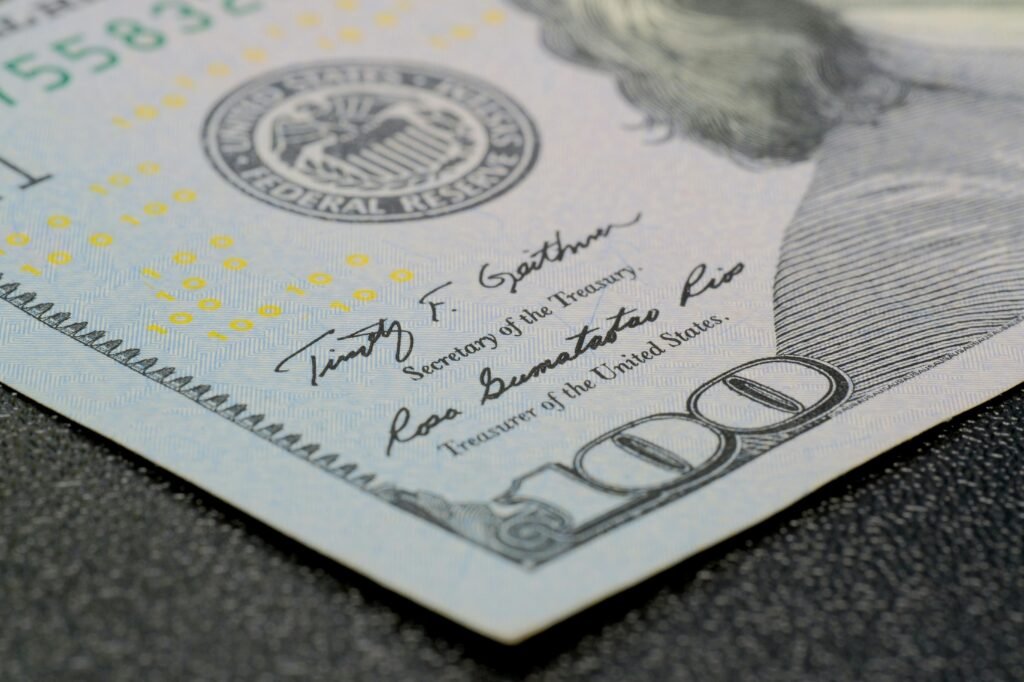Let’s be real, saving money isn’t always easy. Life is expensive, bills pile up, and sometimes it feels like your paycheck disappears before the month even starts. But what if I told you that you don’t need to be rich or live like a minimalist monk to start building a better life financially?
It all begins with small, smart changes. Whether it’s cutting out a few unnecessary expenses, tweaking your habits, or using apps that help instead of draining your wallet, these little shifts can lead to massive results.
In this article, 20 Save Money Live Better Tips I’m sharing 20 practical and doable tips that have helped me and others save money without giving up the things we love. Each tip includes a realistic alternative so you can choose what works best for your lifestyle.
Let’s dive in and start making your money go further one simple change at a time.
20 Save Money Live Better Tips

- Cancel Gym Membership
- Reduce Bank Fees
- Rent or Borrow Books
- Monetize Your Car
- Repair Clothing
- Make Homemade Gifts
- Become a Rate Player
- Start a Side Hustle
- Set a Specific Savings Goal
- Earn Through Your Bank Account
- Automate Your Savings
- Plan Meals Ahead
- Cancel Unused Subscriptions
- Brew Coffee at Home
- Use the 2-Week Wait Rule
- Plan Free Activities
- Live on One Income
- Join a Savings Challenge
- Switch to Generic Brands
- Reduce or Quit Smoking & Drinking
1. Cancel Gym Membership & Use Free/Pay-to-Move Resources
Let’s be honest how often do you go to the gym? If your answer is “not as much as I should,” you’re not alone. Gym memberships can be surprisingly expensive, especially when you factor in initiation fees, monthly charges, and those sneaky auto-renewals. If you’re barely going, that’s money going straight down the drain.
The good news? You can stay fit without spending a fortune. There are tons of free resources out there. YouTube is packed with high-quality workout videos from yoga to strength training to dance cardio. Fitness apps like Nike Training Club and FitOn offer guided workouts you can do at home with little to no equipment. Plus, walking or jogging in your neighborhood is completely free and just as effective for boosting your health.
2. Reduce Bank Fees

Bank fees can be sneaky. One day you’re checking your balance, and the next you see a bunch of charges for “maintenance,” “overdraft,” or “foreign transaction fees.” It’s frustrating and totally unnecessary. Banks make billions each year off customers who don’t even realize they’re being charged for things that could be avoided.
Start by reviewing your recent bank statements. Look for fees you didn’t expect things like ATM charges, monthly account fees, or even paper statement charges. Then call your bank and ask if they can waive them or switch you to a no-fee account. Most banks won’t tell you unless you ask.
Another way to cut fees is to avoid using out-of-network ATMs or linking your account to a savings account as overdraft protection this alone can save you $30 or more per mistake.
3. Rent, Borrow, or Download Books Instead of Buying
Books are wonderful, but buying every one you read can quietly drain your wallet, especially if you’re an avid reader. A single hardcover can cost $20 or more, and if you’re buying multiple books a month, that adds up fast.
Instead of buying, consider renting or borrowing. Most local libraries now offer both physical books and digital lending through apps like Libby or OverDrive. With just a library card, you can borrow eBooks, audiobooks, and even magazines for free.
Another option is to borrow from friends or do book swaps with family, coworkers, or reading groups. You’ll still enjoy great reads without paying a penny.
4. Monetize Your Car
Your car might be one of the most valuable assets you own, but if it spends most of its time sitting in the driveway, you’re missing out on some serious earning potential.
One smart way to save (and even make) money is by monetizing your car. If you don’t use it daily, consider renting it out on platforms like Turo or Getaround. These services allow you to list your vehicle when it’s not in use and earn passive income.
Another option is to drive for ride-sharing apps like Uber or Lyft, even just a few hours a week. If that’s not your style, consider delivering food with Uber Eats, DoorDash, or Instacart, flexible gigs that can boost your income without needing special skills.
Don’t want strangers in your car? No problem. You can still earn by renting out your driveway or parking space in crowded areas or signing up for car-wrapping advertisements. Some companies pay drivers monthly to wrap their cars in brand ads you drive as usual and get paid just for being seen!
5. Repair Clothing Instead of Replacing It

It’s tempting to toss out a shirt with a missing button or a pair of jeans with a small tear, but these are often very fixable issues. In today’s fast fashion world, we’ve gotten used to replacing instead of repairing, but those little replacements add up quickly over time.
Learning a few basic sewing skills, like stitching a seam, fixing a zipper, or hemming pants, can save you hundreds of dollars a year. And don’t worry, you don’t need to become a tailor. A simple sewing kit and a few beginner YouTube tutorials are all you need to get started.
For clothes that no longer fit quite right, local tailors or alteration shops are often more affordable than buying something new, especially for quality items like coats or formalwear.
6. Make Creative (Homemade/Service-Based) Gifts

Gift-giving is a beautiful gesture, but let’s be real it can get expensive fast. Between birthdays, weddings, holidays, and last-minute celebrations, buying gifts can take a serious toll on your wallet.
But the truth is, people often remember how a gift made them feel, not how much it cost. That’s why homemade or service-based gifts can be just as, if not more, meaningful. A batch of homemade cookies, a framed photo collage, or a handwritten letter can say more than a store-bought item ever could.
You can also offer “experience gifts” like a home-cooked dinner, a picnic, or a free night of babysitting. These cost little to nothing but show real thought and effort.
And if you’re crafty, tap into that! Whether it’s candles, knitted scarves, or hand-drawn cards, personalized gifts often feel extra special because they’re made with love.
7. Become a “Rate Player”
Most people stay loyal to the same bank, insurance company, or phone provider for years, even when they’re paying way more than they need to. But here’s a little secret: loyalty doesn’t always pay in the world of rates and services.
To save money long-term, it’s smart to become a “rate player,” someone who actively compares and switches to get better deals. This means shopping around for higher interest rates on savings accounts, lower interest rates on loans or credit cards, and better offers from insurance companies or utility providers.
Don’t be afraid to call your current provider and say, “I found a better rate elsewhere. Can you match or beat it?” You’d be surprised how often they say yes, just to keep your business.
This doesn’t just apply to banks. Internet providers, cell phone plans, car insurance — they all compete for your money. Make that work in your favor.
8. Start a Side Hustle
Sometimes, no matter how much you cut back, your income just isn’t enough to meet your goals — and that’s okay. That’s where a side hustle can be a game-changer.
A side hustle doesn’t have to be some massive business venture. It can be as simple as freelancing a skill you already have, like writing, graphic design, or social media management. Sites like Fiverr, Upwork, and PeoplePerHour make it easy to get started with little to no upfront investment.
Not techy? No problem. You can sell handmade items on Etsy, offer tutoring online, babysit, walk dogs, or deliver food in your free time through apps like DoorDash or Uber Eats. Even selling things you no longer need on platforms like eBay or Facebook Marketplace counts.
The key is to pick something that fits into your life and doesn’t burn you out.
9. Set a Specific Savings Goal & Plan
Let’s be honest, saying “I need to save money” is like saying “I should eat healthier.” It’s a good idea in theory, but without a clear target, it’s easy to put off. That’s why setting a specific savings goal can make all the difference.
Instead of vague intentions, get clear about what you’re saving for. Whether it’s an emergency fund, a vacation, a car, or paying off debt, knowing your “why” keeps you motivated. Then break it down into realistic, trackable steps. For example, if you want to save $1,200 in a year, aim for $100 a month or $25 a week.
You can even make saving fun by using visual trackers, savings apps, or a jar system to see your progress. Watching your goal grow, even slowly, gives you a sense of accomplishment and momentum.
10. Earn Through Your Bank Account

Most people let their money sit in a basic savings account, earning next to nothing. But did you know your bank account can make you money? Some banks offer high-yield savings accounts, paying 10–15x more interest than traditional ones. Others offer cash bonuses just for opening a new account or setting up direct deposit.
Switching to a high-interest or rewards-based account means your money works harder for you without doing anything differently.
11. Automate Savings & Use Round-Up Apps
Saving is tough when you rely on willpower. That’s why automation is your best friend. Set up a recurring transfer from your checking account to savings every payday. You’ll never forget, and you won’t be tempted to spend it.
You can also use round-up apps like Acorns or Chime, which round up every purchase to the nearest dollar and deposit the spare change into a savings or investment account.
12. Plan Meals to Reduce Food Spend

One of the easiest ways to save money (and reduce stress) is to plan your meals ahead of time. Know what you’re cooking for the week, shop with a list, and avoid impulse buys. This also means less food waste, fewer last-minute takeout orders, and healthier eating.
Batch cook meals you can reheat or freeze. Simple staples like rice, lentils, pasta, soups, and roasted veggies go a long way without breaking the bank.
13. Cancel Unused Subscriptions & Email Promotions
It’s so easy to sign up for a free trial… and then forget about it. Those $5–$15 monthly charges add up before you even notice. Take 30 minutes to audit your subscriptions, streaming services, apps, digital tools, gym memberships, and cancel what you don’t use.
Also, unsubscribe from marketing emails that tempt you to shop. Less temptation = fewer impulse buys.
14. Brew Homemade Coffee
Sure, your favorite café makes great lattes, but if you’re spending $5 a day, that’s over $100 a month just on coffee. Making coffee at home is a small habit that can lead to big savings over time.
Invest in a quality French press or coffee maker, and buy good beans. You’ll still enjoy your coffee ritual, for a fraction of the price.
15. Apply the 2-Week Wait Rule for Impulse Buys
Impulse spending can derail even the best budget. That’s where the 2-week rule comes in: if you see something you want (but don’t need), wait 14 days. If you still want it and can afford it, go for it. If not, you just saved yourself from a regretful purchase.
This gives you time to cool off emotionally and make rational financial decisions.
16. Plan Free Activities

Entertainment doesn’t have to cost a dime. Look for free local events, like outdoor movies, community festivals, free museum days, or hiking trails. Invite friends over for a movie night or game night instead of going out.
You can have a rich social life without constantly spending money.
17. Live on One Income (if Possible)
If you’re part of a dual-income household, try living on one salary and saving the other. It’s not easy, but it can fast-track your financial goals — like buying a home, paying off debt, or retiring early.
This forces you to be more intentional with your spending while building serious financial security.
18. Participate in Savings Challenges
Savings challenges are a fun and motivating way to stash money without feeling deprived. Popular ones include:
- 52-week challenge
- $5 bill challenge (save every $5 bill you get)
- Pantry challenge (eat only what you already have)
These “gamify” saving and help you stay engaged with your goals.
19. Swap to Generic Brands
Brand loyalty can cost you more than you realize. Generic or store-brand products often have the same ingredients and quality, just without the fancy packaging.
Try generic for pantry staples, medications, household supplies, and toiletries. If you don’t notice a difference, stick with it and save the difference.
20. Quit or Reduce Drinking & Smoking
Alcohol and cigarettes don’t just affect your health; they drain your wallet too. Cutting back on smoking or drinking can save hundreds, even thousands, a year.
If quitting feels too sudden, try reducing gradually, set weekly limits, skip social drinking, or switch to cheaper alternatives like homemade cocktails or mocktails.
FAQs On Save Money Live Better
Click on the button to read FAQs:
What does “Save Money, Live Better” actually mean?
It means making smart financial choices so you can enjoy life more, without constantly worrying about money. By cutting unnecessary expenses and spending intentionally, you free up resources for the things that truly matter.
Can I still enjoy life while saving money?
Absolutely! Saving money isn’t about deprivation. It’s about finding affordable alternatives, setting priorities, and using creativity to enjoy life without overspending.
How do I start saving if I live paycheck to paycheck?
Start small. Even saving $5–$10 a week makes a difference over time. Automate transfers, track your spending, and cut small expenses like unused subscriptions or takeout meals. Small steps lead to big results.
Is budgeting necessary to save money?
Yes — budgeting helps you see where your money is going. It gives you control and helps you make decisions that align with your goals. Without a budget, it’s easy to overspend without realizing it.
What are the easiest ways to save money fast?
Some of the fastest ways to save include:
1. Canceling unused subscriptions
2. Cooking at home
3. Using cashback and rewards apps
4. Buying generic brands
5. Meal planning
Final Thoughts: Small Steps Lead to Big Savings
You don’t need to overhaul your life overnight. Start with 2–3 tips from this list and build from there. The key is consistency — saving money is like planting seeds. The results compound over time, giving you more peace, freedom, and choices.
Remember, living better isn’t about spending more — it’s about spending smart.
Hi there. My name is Abbas Khan. I’m passionate about finding smart ways to save and make money from anywhere in the world.
Learning how to earn remotely and manage my finances gave me true freedom, and now I want to help you do the same.
Join me as I explore money-saving hacks, income ideas, and tips to build a flexible, location-independent lifestyle you’ll love.

